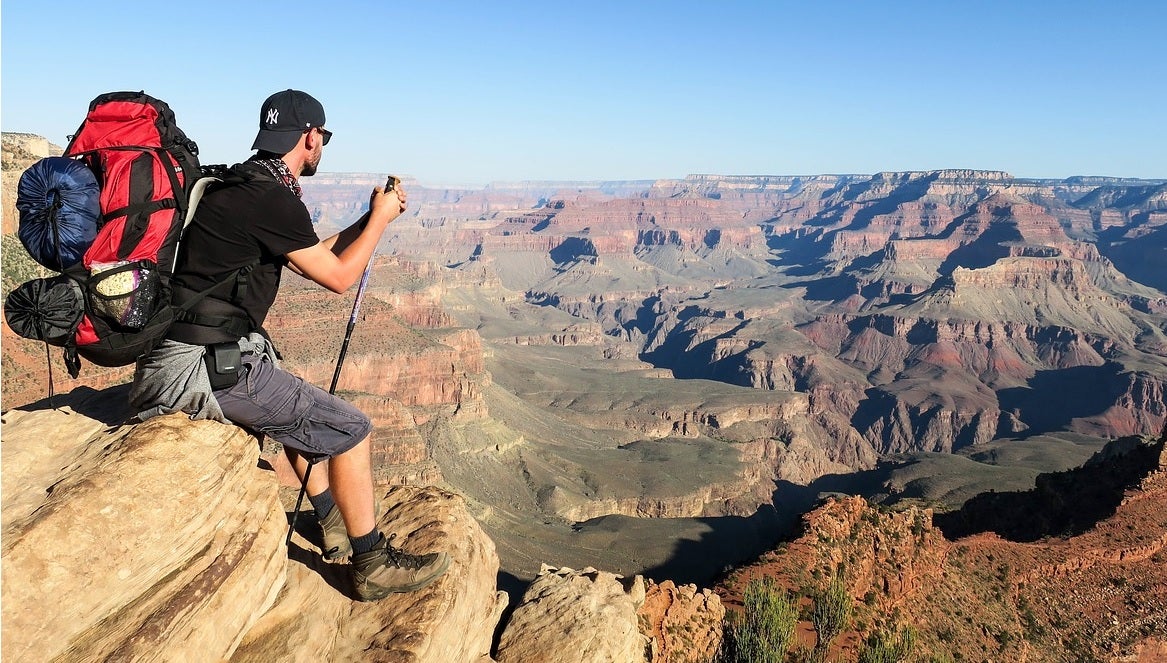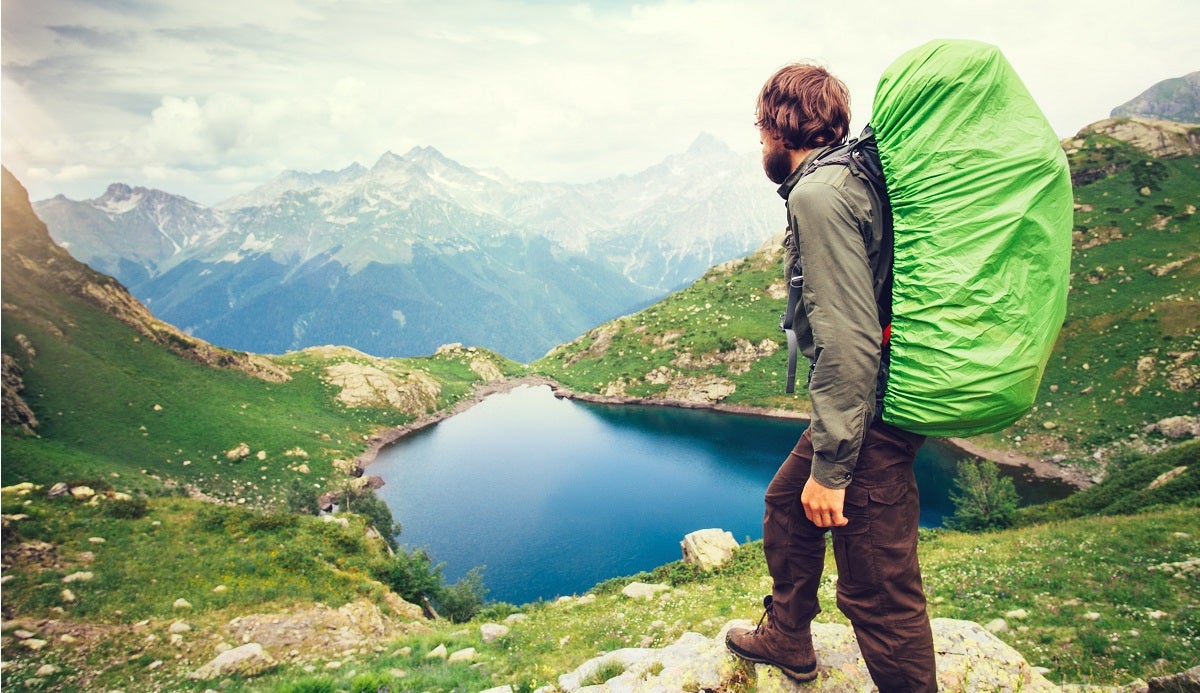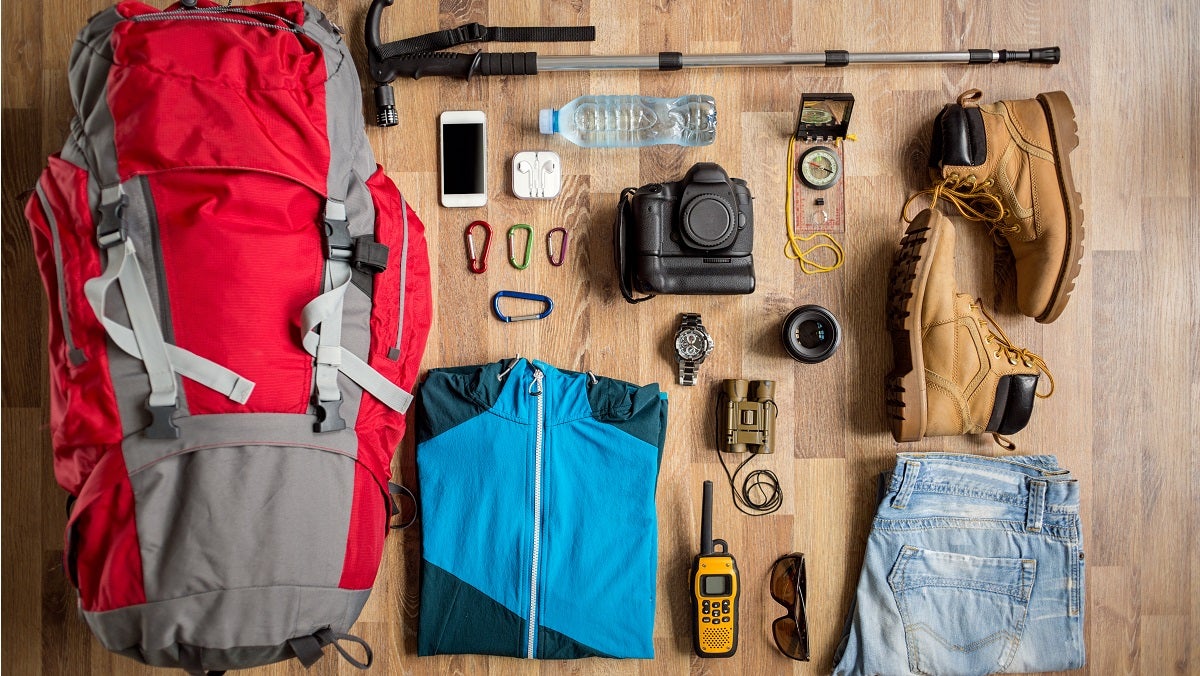
Our Editors independently research, test, and rate what we feel are the best products. We use affiliate links and may receive a small commission on purchases.
Backpacking is an amazing experience that everyone should consider trying at least once. If you’re about to embark on your first backpacking trip, there’s some great packing tips to keep in mind for this potentially overwhelming step.
1. Start with Essentials
The first step are the essentials: sun protection, insulation, lighting, navigation (like a handheld GPS), first aid, fire, food, water, shelter, and tools are the ten essentials as per a guide on outdoor adventurers. It’s ten categories of items every backpacker must have to make sure they’re well-prepared.
Things like sleeping bag fall under insulation and a headlamp under lighting. Then, you’ll need a pack for everything. Water can be either your own drinking water or means to purify backcountry water.
2. Think About Hygiene
This one isn’t covered in the ten essentials, but hygiene is essential, such as biodegradable soap and hand sanitizer. Figure out all the rules and leave-no-trace principles for bathroom tactics, and get the right gear like a trowel and a portable shower.
For women, find out the best way for you to manage your period, whether it’s with tampons or pads or a menstrual cup. Be sure to pack out everything you take in.
3. Borrow or Rent if Needed
If you’re on a budget, you can consider borrowing or renting your gear instead of buying all of it. Good, reliable gear can come with a hefty price tag, so check with backpacker friends to see if they’re willing to lend you pieces.
4. Get Light Gear
Since you’ll be carrying everything on your back, you want to get the lightest versions of everything, including your backpack itself, the tent and sleeping bag. Often the lighter models are the more expensive ones. Be sure the sleeping bag you’re getting is the appropriate temperature for where you’re going.

5. Think of Your Backpacking Goals
Pack in relation to the experience you’re looking for, whether it’s long day hikes deep into the backcountry or small hikes with long camp lounges. If you want to have a lot of time relaxing or cooking, you may wish to bring a book and more items.
6. Don’t Fill Extra Space
If you have space left over, don’t think you need to fill it. Stick to what you need and you can adjust accordingly for your next trip. The heavier your backpack, the more challenging it’ll be to hike with it. It should never weigh more than 40% of your body weight or you could hurt yourself.
7. Adjust the Gear
If you’re going to a bear area, you might need a spray and canister, or a food bag. If you’re going through desert, plan your water supply. If you’re going through rivers, you’ll need sandals to keep your boots dry. You get the idea – adjust what you’re bringing based on the environment.

8. Lay It Out First
Laying out all of your gear before packing is a great way to make sure you have everything you need without missing anything of bringing too much. Separate it into three categories: what you need, what you really want, and the bonus items.
9. Organize Your Bag
Think about the way you organize your bag – everyone does it differently. Pack it in a way that makes sense to you, but try to keep all your small items in a sealable bag so you can easily grab them, especially to protect electronics if it rains.
10. Think of the ABC’s
- A means accessibility and making sure what you need during the hike are easy to reach.
- B is for balance, so you can keep the weight evenly distributed in the pack.
- C is for compression, so your clothes can take as little space as possible.
- D means dry, so you can make sure your essentials stay protected. Lastly,
- E is for everything inside. It’s a bad idea to hang things off your pack because it can affect your balance or get caught on branches or fall off.
11. Practice
Practice packing your bag, and not just the night before. Pack it a couple of times and walk around the house with it on so you can see which way is best.
Lifestyle blogger Katrina Hatchett works for Academic Brits. She works on many projects, but especially travel and backpacking articles. She enjoys researching new products and reviewing their reliability on the trail.
